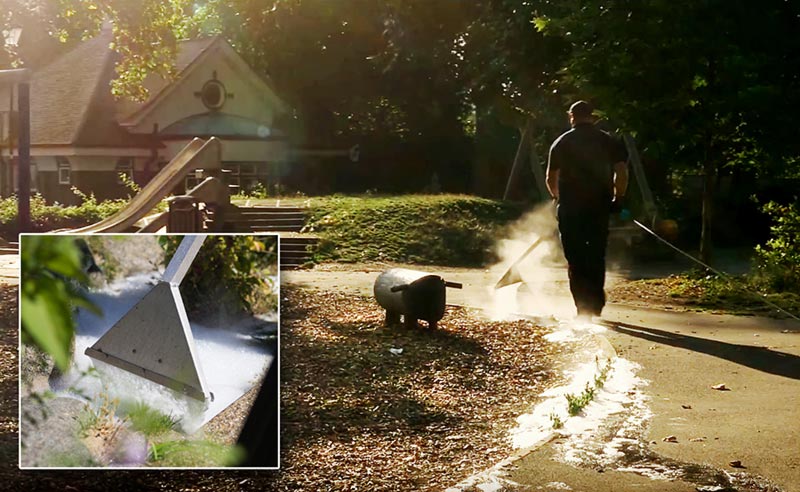The decision to reduce or eradicate the use of herbicides may be taken for many reasons, but with a wide range of alternatives available, how can facilities be assured that a non-chemical option is going to provide a viable solution? To provide confidence, Foamstream has been the subject of numerous independently controlled studies conducted by the University of Pisa, University of Athens and Cornell University, together with The US Department of Natural Resources and the Austrian Institute of Technology – all of which highlight the comparable or superior performance of Foamstream when compared to glyphosate.

An ever-increasing body of evidence indicates the substantial negative impact on nature, human beings and the environment caused by the existing level of herbicide use. Factor in that the amount of herbicide-resistant weeds is also on the rise, and green space managers are potentially having to increase the number of spray operations they conduct in any given period. It is therefore not surprising that facilities from all corners of grounds and public space management are seeking safer and more sustainable solutions that can deliver effective weed and vegetation control without detriment to the operator and the environment.
The patented Foamstream process combines hot water and an organically-derived biodegradable foam, delivered through one of Weedingtech’s range of machines. The active ingredient is the hot water, with the foam acting as an ‘insulation blanket’, preventing the heat from escaping and keeping the water in the ‘kill zone’ (temperatures of 57o and above) for longer. The heat penetrates the waxy outer layer of the leaf, travels down the stem and into the roots – killing or severely damaging the plant and causing it to die. In addition to eradicating the plant, Foamstream also sterilises surrounding seeds and spores that haven’t yet germinated, helping to reduce future weed growth.
Since its launch in 2011, numerous high profile individual academic trials have been published citing the efficacy of Foamstream – one of the most recent, in 2022, being the University of Athens study which found that Foamstream reduced weed biomass by a rate between 81% and 96% compared to mulching, mowing, pelargonic acid and the untreated control, and, in-line with glyphosate, resulted in the lowest Normalised Difference Vegetation Index (NDVI) and weed biomass.
Leo de Montaignac, CEO of Weedingtech commented, “We understand that any investment in technology requires credible third-party evidence that shows organisations that they are making the right choice. That’s why we’ve always been keen for independent third parties to trial Foamstream in proper controlled environments. We’re delighted that the team at the Agricultural University of Athens took the time to comprehensively put Foamstream to the test against other methods of weed control and recognised its value. We’d welcome further research by any other interested universities and organisations to carry out further testing of our eco-friendly weed control technology in other settings.”


